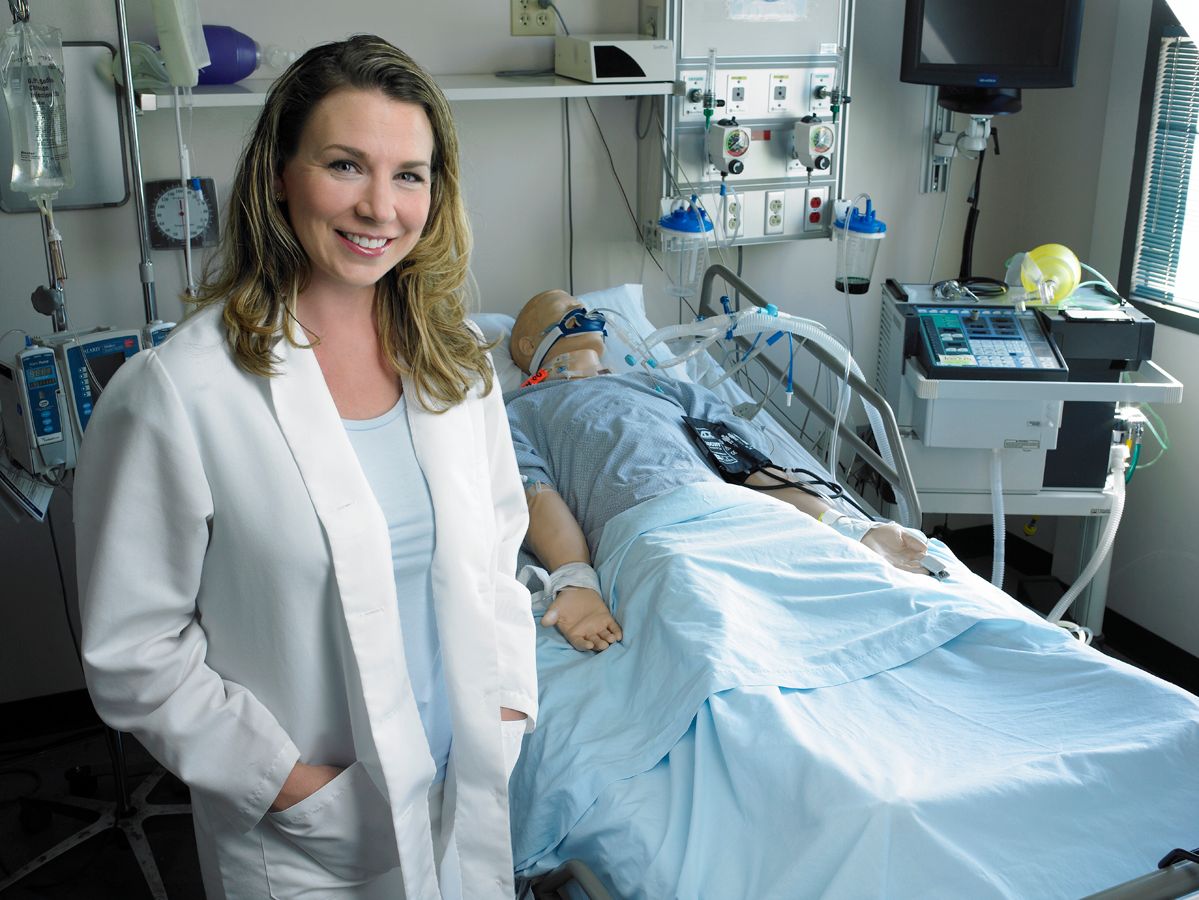Nursing leader welcomes $100M to train nurses, but says industry still faces crisis
The president of the American Nurses Association applauded the Biden administration for the grants, but said nurses still face violence, burnout and low wages.
Jennifer Mensik Kennedy, president of the American Nurses Association, praised the Biden administration for investing $100 million to train nurses. But she said the nursing industry faces many challenges. (Photo: American Nurses Association)

Nurses have been urging the Biden administration and lawmakers to pay attention to the crisis in their profession.
When the Department of Health and Human Services announced it was releasing $100 million in grants to expand the nursing workforce, Jennifer Mensik Kennedy applauded the Biden administration.
Mensik Kennedy, the president of the American Nurses Association, said the influx of aid will help, but it doesn’t solve some of the immediate problems driving nurses out of the profession.
“There isn’t a price tag that you can put on the clinical expertise, sincere humanity and vast value that nurses bring to the health and education of their patients and our communities,” Mensik Kennedy said in a statement.
“We are pleased with this action, but we will remain firm in urging Congress to address chronic systemic challenges that nurses are facing every day. Workplace violence, burnout, low wages, and the national nurse staffing crisis still demand immediate solutions.”
To be clear, the American Nurses Association said it applauded Biden and Vice President Kamala Harris for the nursing grants. The group said it was ready to work with the government to support the efforts, which include directing more funds to training registered nurses, nurse midwives and nursing faculty.
“ANA stands ready to partner and collaborate around the key priorities and focus of the award efforts,” Mensik Kennedy said. “It’s especially great to see that this action will deploy necessary training and support to advanced practice registered nurses.”
But the nurses association also highlighted the need to give nurses more support.
Many nurses have left bedside roles in hospitals or at least considered changing careers since the emergence of the COVID-19 pandemic. Some nurses that hospitals aren’t doing enough to support them, saying many nurses work without sufficient staffing. Nurses also say health systems haven’t done enough to curb the rise of violence in hospitals, and some say they don’t feel safe.
Nursing leaders, and many health organizations, have urged Congress to pass legislation to give healthcare workers the same protection as airline employees. They’ve called on lawmakers to pass bills to raise the penalties for assaulting healthcare employees.
The nursing association is also pressing Congress to pass the Improving Care and Access to Nurses (ICAN) Act. Nursing groups said the measure (H.R. 2713) would make it easier for nurse practitioners, nurse anesthetists, and clinical nurse specialists to provide care for underserved communities.
In a January interview with Chief Healthcare Executive®, Mensik Kennedy said the problems facing the nursing industry have been building for years, but the pandemic “was the straw that broke the back.”
Mensik Kennedy called on hospitals to bring more nurses into leadership positions and to incorporate their decisions in patient care.
“If we want individuals to be working in healthcare settings, we need to look at the environment in which people are practicing,” she said in January.
Telehealth faces a looming deadline in Washington | Healthy Bottom Line podcast
February 12th 2025Once again, the clock is ticking on waivers for telemedicine and hospital-at-home programs. Kyle Zebley of the American Telemedicine Association talks about the push on Congress and the White House.















